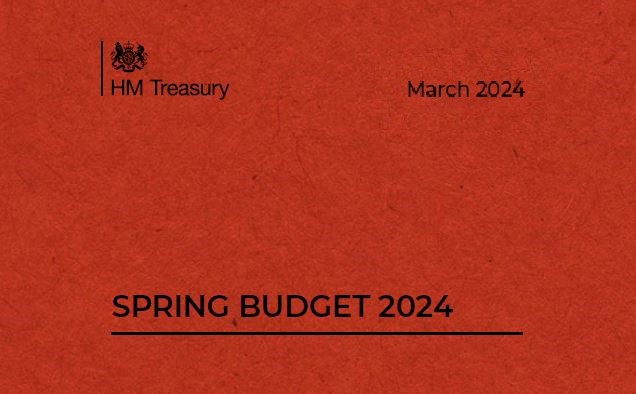Spring Budget update March 2024
March 06, 2024 –
Like several financial statements we’ve received from the Chancellor in the last few years, today’s Budget was very much focused on supporting middle-income workers. It was also slightly family friendly so, as a result, there will be a double win for some working parents from next month.
In an election year we might have expected to see more headline grabbing announcements but, by the end of the Chancellor’s speech, there weren’t many measures announced (especially for low-income households) that we hadn’t already seen coming.
We didn’t see any extra cost of living payments being announced or further changes to the Local Housing Allowance from April 2025 onwards. A raise in the benefit cap would also have been welcomed but was not on the cards today. Also, surprisingly, there were few announcements for pensioners.
Read on for the relevant changes for people on low incomes that were announced by the Chancellor today.
High Income Child Benefit Charge (HICBC) – 6 April 2024
What's changing? From April 2024, the threshold from which parents start to pay an extra tax (via self-assessment) on their Child Benefit is increasing from £50,000 to £60,000 a year. The extra tax is also being made less severe. The upper income threshold, when the value of Child Benefit is taxed away completely, is rising from £60,000 to £80,000. This means 1% of the benefit will be taxed away for every extra £200 a parent earns above £60,000 (instead of 1% for every extra £100 above £50,000).
From April 2026 (subject to consultation), the government also plans to move to a household system of administering the HICBC, rather than an individual system, so that single earner families are not disadvantaged.
As we mused in our Is it time to change the High Income Child Benefit Charge? blog last week, this change was well overdue but, in our opinion, it misses a key element, as our Director explains:
|
“The Chancellor’s changes to the High Income Child Benefit Charge will be welcome news for parents earning under £80,000 a year. But to take advantage of the changes these parents need to make sure they are claiming their entitlement. “We would like to see the government launch a Child Benefit take-up campaign, encouraging everyone to take-up their claim. Even if someone does earn over £80,000 they’ll still be better off claiming Child Benefit and paying the tax back, rather than not claiming at all, because everyone who claims automatically gets credits towards their state pension.” Phil Agulnik, Director, entitledto |
National Insurance – 6 April 2024
What's changing? The rate of Class 1 National Insurance contributions (NICs) paid by employees is reducing from 10% to 8%. Self-employed people will have their Class 4 NICs reduced from 9% to 6% (before today this was going to reduce from 9% to 8% in April).
While this was the main measure announced today it will have a minimal effect for people with low earnings because many don’t earn enough to reach the level at which NICs need to be paid (or if they do earn enough to reach threshold they’re not far above it). This is aided by the fact that tax thresholds are being frozen in 2024/25, which for some low earners will more than cancel out the gain from the NICs rate reduction.
Household Support Fund Extension – April to September 2024
What’s changing? The Household Support Fund, a pot of money for local authorities to allocate to local areas of need such as food and energy support for vulnerable households, is being extended for another 6 months. An extra £500 million will be split between councils around the UK for the period of April to September 2024.
As the last pot of money is due to end in just a few weeks’ time on 31 March 2024, this is a welcome announcement.
Prepayment meter standing charges – 1 April 2024
What’s changing? The extra standing charges paid by prepayment meter (PPM) users will be removed. This will end the inequity of people with prepayment meters being charged more for their energy than others people.
Previously the PPM premium was absorbed by the government’s Energy Price Guarantee but this support is due to end on 1 April 2024. The regulator, Ofgem, announced in February that people with a prepayment meter will continue to be supported so that their standing charges are no more than Direct Debit standing charges from April 2024 onwards.
Budgeting Advance repayment periods - December 2024
What’s changing? The period for people to repay Budgeting Advance loans taken out from December 2024 onwards, will increase from 12 months to 24 months.
These loans are available to people who receive Universal Credit and need help to pay for emergency household costs, such as buying a new cooker, helping to get job or to stay in work.
Sources
https://www.gov.uk/government/publications/spring-budget-2024

